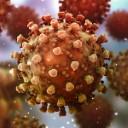-
What It’s Like to Get a “C” in Graduate School
I was afraid that my thyroid cancer diagnosis would derail my graduate school plans. Instead, it helped shape my career path.
by Carly Flumer
-
Embracing Palliative Care Sooner
Studies show the benefits palliative care can provide to advanced cancer patients, but also highlight inequities in access.
by Jen Tota McGivney
-
International Perspectives on COVID-19 and Cancer
Researchers from around the globe share insights into the outcomes of people with cancer who are infected with the coronavirus.
by Bradley Jones
-
Tests Spot Signs of Cancer in the Blood
At the AACR Virtual Annual Meeting I, researchers presented data on blood tests that aim to supplement current cancer screening and speed up diagnosis.
by Kate Yandell
-
Using Leftover Cancer Drugs to Help Others
Cancer drug repositories that accept unused drugs could provide an affordable source of medications for patients in need, while also providing patients left with extra drugs a way to give back.
by Jon Kelvey
-
Tumor Testing May Help Guide Pancreatic Cancer Treatment
For a small group of pancreatic cancer patients who were able to receive therapies targeting the molecular alterations in their tumors, these matched therapies were associated with longer life.
by Cheryl Platzman Weinstock
-
Facing Cancer and a Pandemic at the Same Time
Cancer patients and their families share stories of fear, love and uncertainty as they find new ways to support each other.
by Jen Tota McGivney
-
Virtual Connection in a Time of Social Distance
Responding to the coronavirus, patient advocates and nonprofits expand existing outreach initiatives and launch new ones.
by Marci A. Landsmann
-
Cancer Treatment During a Pandemic
People being treated for cancer may be at elevated risk of developing severe cases of COVID-19. The coronavirus is also affecting how cancer care is delivered.
by William G. Nelson, MD, PhD
-
Testing Cancer Patients for the Coronavirus
Cancer centers are taking advantage of their in-house molecular laboratories to selectively test certain cancer patients for the coronavirus.
by Anna Azvolinsky
Cancer Talk
Treatment Combination Improves Survival in EGFR-positive Lung Cancer
Adding chemotherapy to targeted therapy improves outcomes for people with advanced EGFR-positive non-small cell lung cancer.
by Sandra Gordon
Lessons From 20 Years Living With CancerMultiple myeloma survivor Jonathan Gluck reflects on uncertainty, and the scientific progress that has kept him living with cancer for more than two decades.
by Eric Fitzsimmons
The Enduring Importance of Cancer Disparities ResearchOpening session from AACR conference highlights how perseverance and adversity have informed cancer disparities research over the years.
by Eric Fitzsimmons
Most Cancer Survivors Don’t Meet Healthy Diet GoalsDespite research linking fruits and vegetables to cancer survival, many people do not change their eating habits after diagnosis.
by Darlene Dobkowski














